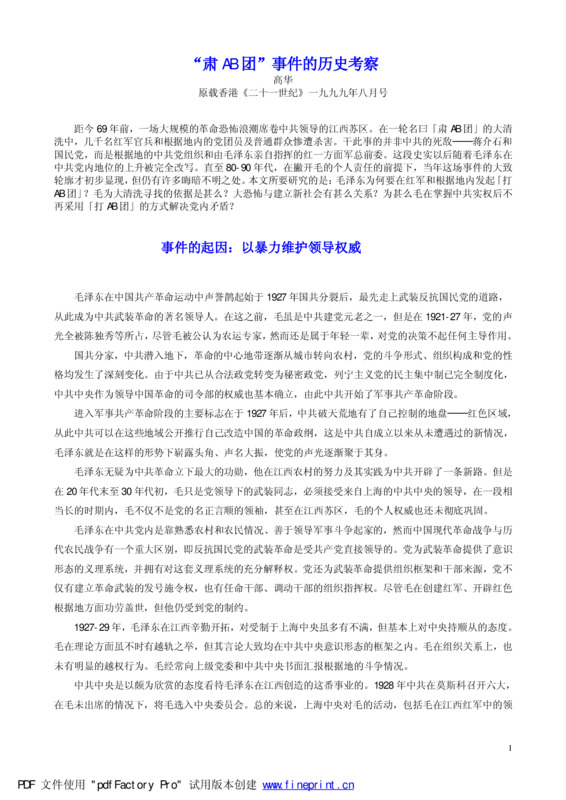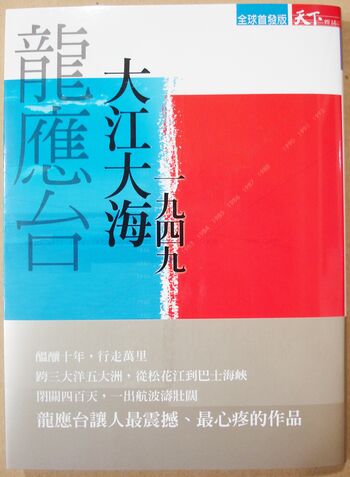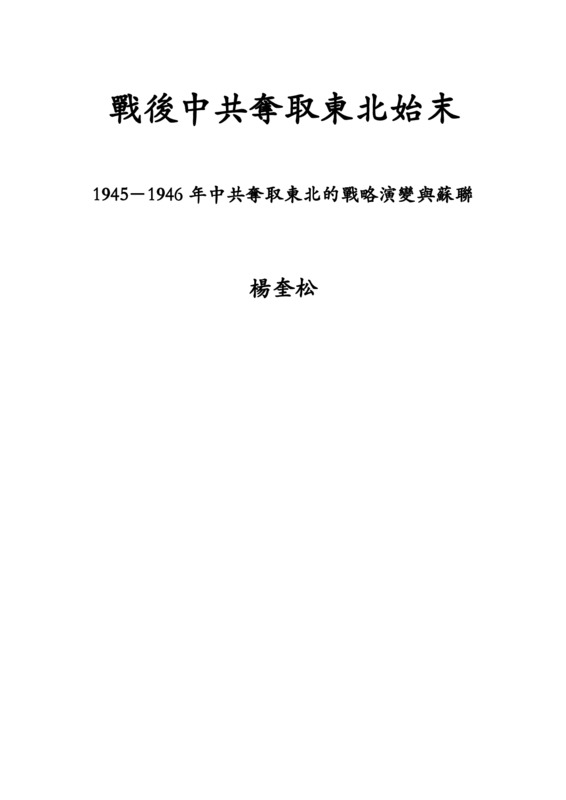Explore the collection
Showing 6 items in the collection
6 items
Book
AB Corps and the Futian Incident
In 1930, a mutiny erupted in the Red Army in the town of Futian. In the ensuring purge, more than 700 officers were executed. After this, the campaign to root out Anti-Bolshevik (AB) groups spread to various parts of China, with 70,000 executed. Occurring just nine years after the founding of the CCP, it is one of the earliest and most significant purges in the party's early history.
The first person to pay attention to the Futian Incident was Professor Dai Xiangqing of the Jiangxi Provincial Party School. Starting in late 1979, he and other colleagues went to southern Jiangxi to collect materials, conduct interviews and investigate, and found that this was an unjust and wrong case, and began to publish articles on the matter.
In the early 1980s, Dai Xiangqing sent his article to a senior general in the PLA, Xiao Ke. After that, the research on the Futian Incident attracted the attention of senior central officials. The CCP's party history research agency sent people to Hunan and Jiangxi to investigate and collect materials. The Organization Department of the Central Committee of the Communist Party of China sent a review team for the Futian Incident and reported the vindication documents to the central government, but even today there is currently no official conclusion on the matter.
This book is an important study of the early history of the Communist Party of China, often mentioned by prominent independent historians, such as Yang Kuisong. As an officially recognized research project, this book does not make ideological breakthroughs, but its detailed historical materials, and its data index make it particularly valuable for understanding this historical event.
This book was published by Henan People's Publishing House in 1994.
Book
Chen Cheng's Memoirs—The War between the Nationalists and Communists
Mr. Chen Cheng (courtesy name Cixiu; alias Shisou) served as the commander of the KMT army, commander-in-chief of the group army, commander-in-chief of the theater of operations, and chief of the general staff of the KMT. After the defeat of the Kuomintang army in Taiwan, Chen Cheng served the Administrative Yuan as Vice President of the Kuomintang. The volumes associated with *Chen Cheng's Memoirs* were published by Taiwan's National Museum of History in 2005. The series is divided into six volumes: *The Northern Expedition and the Chaos* (one volume), *The War between the Nationalists and Communists* (one volume), *The War of Resistance Against Japanese Aggression* (two volumes), and ***The Construction of Taiwan*** (two volumes). The first volume, *The War between the Nationalists and Communists* includes three parts: *Suppressing the Communists - Memories of the Military*, *Summary of Mr. Chen's Words and Actions*, and *Correspondence and Telegrams*. The book has original historical materials related to the five sieges and the counter-insurgency. In particular, this is the first time that important historical materials regarding the correspondence between Chiang Chung-cheng (courtesy name of Chiang Kai-shek) and Cixiu have been made public.
Article
Historical Examination of the Purge of the "AB" Regiment
More than 70 years ago, a massive wave of revolutionary terror swept through the CCP-led Jiangxi Soviet Union. Thousands of Red Army officers and soldiers, as well as members of the Party and the general public in the base area, were brutally murdered in a purge called the "Purging of the AB Troupe." Gao Hua's article examines why Mao Zedong initiated the "purge of the AB Group" in the Red Army and the base areas. What was Mao's rationale for the Great Purge? What is the relationship between the Great Terror and the establishment of a new society? Why did Mao stop using the "Fighting the AB Groups" as a means of resolving internal conflicts in the Party after he assumed real power in the CCP?
Book
The Great River and the Sea: 1949
This book by Taiwanese author Lung Ying-tai, published by Taiwan's <i>World Magazine</i> in 2009, is a detailed account of the history related to the period before and after the 1949 Nationalist-Communist Civil War from a literary perspective. After ten years of preparation, Long Yingtai traveled for 400 days to Changchun, Nanjing, Shenyang, Matsu, Taitung, and Pingtung to visit many survivors of the Nationalist-Communist Civil War.
Book
The Herald of History: The Solemn Promise of Half a Century Ago
Compiled by the Sichuan writer Xiao Shu (b. 1962), this book offers a variety of pro-democracy statements released by the Chinese Communist Party media, including short commentaries, speeches, editorials, and documents from <i>Xinhua Daily, Jiefang Daily, Party History Bulletin</i>, and <i>People's Daily</i> from 1941 to 1946. The essays criticize the Kuomintang government for running a "one-party dictatorship" and promised freedom, democracy and human rights.
The book was published by Shantou University Press in 1999. <a href="https://archive.ph/20220329191611/https://www.rfi.fr/tw/%E4%B8%AD%E5%9C%8B/20130817-%E9%A6%99%E6%B8%AF%E5%A4%A7%E5%AD%B8%E5%86%8D%E7%89%88%E3%80%8A%E6%AD%B7%E5%8F%B2%E7%9A%84%E5%85%88%E8%81%B2%E3%80%8B">According to Xiao Shu</a>, the book was heavily criticized by the then-head of the Propaganda Department, Ding Guangen. The publishing house was temporarily suspended, and copies of the book were destroyed. It was republished in Hong Kong by the Bosi Publishing Group in 2002, and reprinted by the Journalism and Media Studies Center of the University of Hong Kong in 2013.
Article
Yang Kuisong: The Beginning and End of the CCP's Seizure of the Northeast after the War
The occupation of the Northeast was key to the CCP's success in seizing power in 1949. The author of this book, Yang Kuisong, is a professor and doctoral director of the Department of History at East China Normal University, and a researcher at the Institute of Modern History at the Chinese Academy of Social Sciences. This book describes the CCP's taking of the Northeast as well as the competition between the U.S. and the Soviet Union at that time. After reading it, you will understand: how the Soviet Union played a key role in the CCP's occupation of the Northeast.





